No products in the cart.
If you’ve been wondering about the role of CBD for cats with IBD, you’re entering a fascinating realm of pet care. Understanding how CBD may interact with this chronic and frequently debilitating illness is more critical than ever as the number of felines affected grows.
This blog will look at the research behind CBD, its potential advantages for lowering gastrointestinal inflammation, and practical suggestions for safely providing it to your cat.
What is IBD in Cats?
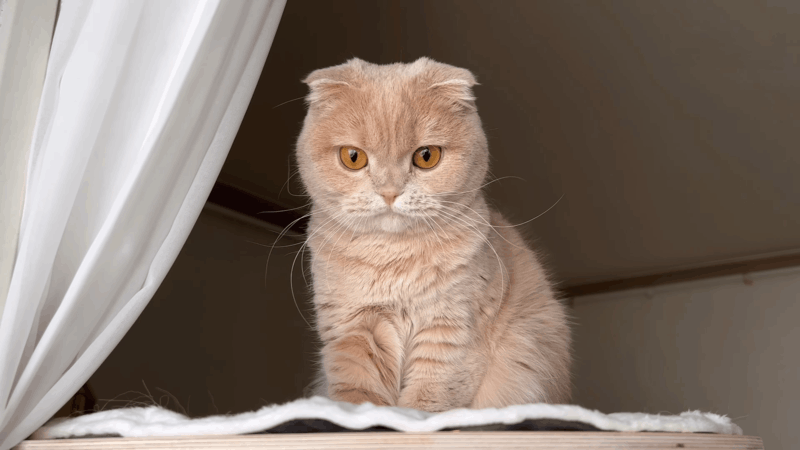
Inflammatory Bowel Disease (IBD) in cats is a chronic condition that involves inflammation of the gastrointestinal tract. It is actually a collection of long-term gastrointestinal illnesses brought on by inflammatory cells seeping into the gastrointestinal tract walls of cats rather than one specific disease.
Stomach, small intestines, or colon are some of the parts that the inflammation can occur, however, it usually happens in the intestines.
What Causes IBD in Cats?
The causes of Inflammatory Bowel Disease (IBD) in cats are complex and not fully understood, however various variables are known to contribute to the development of the disorder.
- Genetic predisposition: Some cats inherit traits that make them more prone to IBD.
- Immune system dysfunction: The immune system mistakenly attacks gastrointestinal cells, causing inflammation.
- Gut flora imbalances: Disruptions in the normal gut bacteria can trigger inflammation.
- Dietary factors: Food allergies or intolerances can initiate an inflammatory response.
- Environmental stress: Stress can worsen or trigger symptoms by affecting gut and immune functions.
- Infections: Persistent infections can cause ongoing gastrointestinal inflammation.
Understanding these causes helps in managing and treating IBD, though it often requires a holistic approach that includes dietary management, medical treatment, and sometimes environmental modifications to manage the disease effectively.
Types of IBD in Cats
Based on the primary type of inflammatory cell discovered during gastrointestinal tract histological analysis, IBD in cats can be classified. The main types include:
- Lymphocytic-plasmacytic IBD: The most common form, characterized by infiltration of lymphocytes and plasma cells. This type mainly affects the small intestine but can also involve the stomach and colon.
- Eosinophilic IBD: This form is marked by the presence of eosinophils, another type of white blood cell. It typically affects both the stomach and the intestines, and is often associated with allergic responses.
- Granulomatous IBD: The least common form, involving macrophages forming granuloma-like structures. This severe form can mimic tumors and mainly affects the stomach and intestines.
Symptoms of IBD in Cats
Though they can differ widely, IBD symptoms in cats usually involve a combination of gastrointestinal issues and systemic symptoms:
- Chronic vomiting: Frequent vomiting that occurs over a long period.
- Diarrhea: Persistent or intermittent, and may contain mucus or blood.
- Weight loss: Often significant due to decreased appetite and nutrient malabsorption.
- Poor appetite: Cats may show less interest in food or become picky eaters.
- Lethargy: Decreased energy levels and less interest in normal activities.
- Abdominal pain: Discomfort in the belly, which may be noticeable through a cat’s reluctance to be touched there.
The degree and location of inflammation may affect the symptoms that each kind of IBD presents. To get the ideal treatment to the cat’s specific condition and needs, consulting with a veterinarian is essential.
What is the Life Expectancy for Cats with IBD?
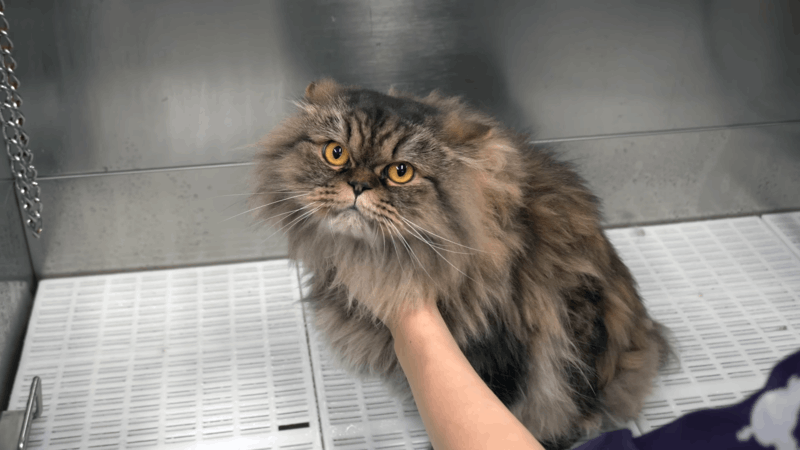
Cats with Inflammatory Bowel Disease (IBD) can live normal lifespans with appropriate management, which includes dietary modifications, medications to control inflammation, and regular veterinary monitoring.
Life expectancy is largely dependent on how well the illness is managed and how healthy the cat is overall. Proper treatment can ease symptoms and prevent problems, helping cats with IBD live a good quality life.
Cat IBD Treatment: Effective Strategies for Relief
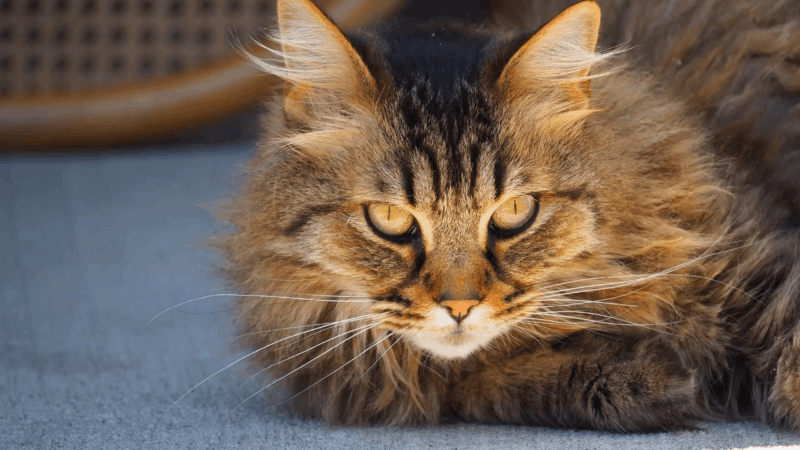
In order to treat feline inflammatory bowel disease (IBD), intestinal inflammation must be reduced while maintaining enough nutrition. Immunosuppressive drugs, food restriction, and maybe probiotics are effective therapeutic strategies.
To monitor the illness and make appropriate modifications to the treatment plan with the goal of symptom reduction and long-term management, routine veterinary check-ups are needed.
Food for Cats with IBD
Improving nutrition absorption and reducing gastrointestinal irritation are the main objectives of diet-based IBD management for cats. Here are several dietary strategies that veterinarians might recommend:
- Hydrolyzed protein diets: Simple-digested proteins are used in these diets to lower the possibility of an immunological response.
- Novel protein diets: The cat’s immune system does not perceive the protein source as a threat so introducing it to them can help prevent allergic reactions.
- Limited ingredient diets: These diets are lower in component count, which facilitates the identification of potential culprits for the unsettled stomach.
- Highly digestible diets: Easy-to-digest ingredients help improve nutrient absorption and reduce gastrointestinal workload, leading to less irritation in the intestines.
- Fiber modification: Some cats may benefit from more fiber, which can improve colon health and firm up loose stools. Others might need less fiber to cut down on gas and fermentation.
- Supplements: Adding probiotics, prebiotics, and vitamins can support the gut microbiome and overall intestinal health, though these should be used under veterinary guidance.
It’s crucial to remember that cats can react differently to dietary modifications and that not all of them will do so. To customize the strategy following the guidance of the vet, the unique requirements and responses of the cat are the important things that we should consider.
Regular check-ups are required to assess the cat’s health and make any necessary food adjustments.
CBD For Cats with IBD: Is It Safe?
CBD (cannabidiol) is increasingly considered for use in cats with IBD due to its anti-inflammatory and pain-relieving properties. While studies in cats are limited, anecdotal evidence suggests it may help reduce inflammation and discomfort associated with IBD.
Safety considerations when using CBD for cats with IBD
When thinking about using CBD for cats with IBD, ensuring their safety is key. Please consider these essential safety tips:
- Consult with a veterinarian: Getting advice from a veterinarian before using CBD for treatment of IBD in cats is necessary. They can offer safe guidance to promote recovery and health.
- Quality of CBD products: To guarantee purity and the absence of impurities, choose premium CBD products for cats that are tested by a third party.
- Proper dosage: The weight of cats may determine the dosage of CBD that they can use. It should be started with a small dose and gradually raise it as necessary. And do not forget to follow the veterinarian’s recommended dosage instructions.
- Avoid THC: Make sure the CBD product for cats has very little or no THC in it, as cats can be hazardous to THC.
- Monitoring: Regularly monitor your cat’s response to CBD treatment and report any changes or concerns to your veterinarian.
The safety and proper dosing for cats are different from humans therefore CBD should be used cautiously and always under the supervision of a veterinarian. It’s crucial to use products specifically formulated for pets to avoid harmful additives and ensure appropriate dosages.
Conclusion
Exploring CBD for cats with IBD shows promise for enhancing their comfort and quality of life. Using this natural compound responsibly and under vet supervision could integrate well with existing treatments. As this field develops, combining traditional and innovative methods could greatly improve outcomes for feline IBD management.
I am Nelson Cooper, I pursue my passion for writing and my belief is that cats love humans. I enjoy traveling and have a deep appreciation for the beauty of nature, as well as a soft spot for animals, particularly cats.

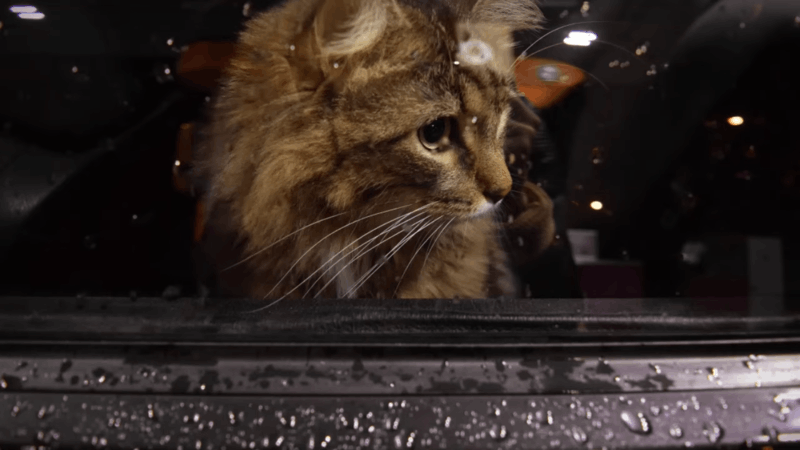
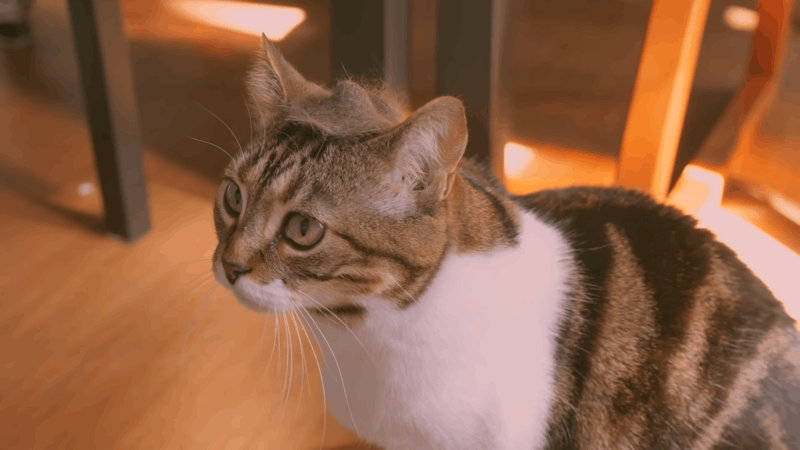
Im obliged for the article post.Thanks Again. Really Cool.